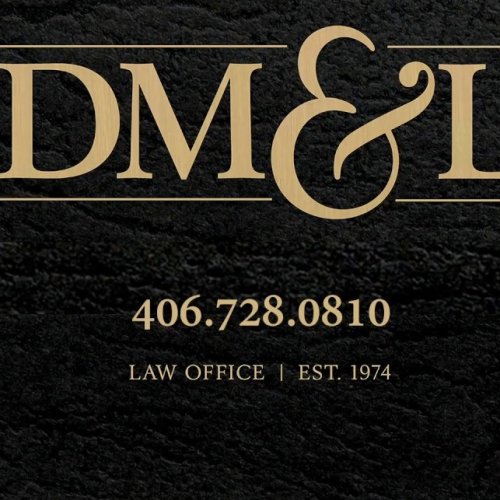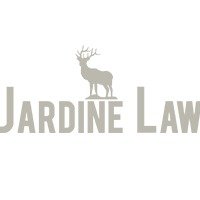Best Private Client Lawyers in Montana
Share your needs with us, get contacted by law firms.
Free. Takes 2 min.
Or refine your search by selecting a city:
List of the best lawyers in Montana, United States
United States Private Client Legal Articles
Browse our 1 legal article about Private Client in United States written by expert lawyers.
- Estate Tax 2026 Outlook: United States Exemption Sunset Prep
- Federal estate and gift tax exemption is historically high (over $13 million per person in 2024) but is scheduled to drop by roughly half after December 31, 2025. The IRS "use it or lose it" rules let you lock in the current higher exemption with lifetime gifts; if you wait... Read more →
About Private Client Law in Montana, United States
Private Client law in Montana focuses on providing legal services to individuals and families concerning personal wealth, estate planning, asset protection, trusts, probate, tax issues, charitable giving, and elder law. This practice area aims to help clients manage and protect their assets both during their lifetime and after death. It covers a range of matters including drafting wills, setting up trusts, guardianship proceedings, elder care planning, and navigating the probate process. Private Client attorneys work closely with clients to create strategies tailored to their financial and family needs under Montana’s specific laws.
Why You May Need a Lawyer
There are many reasons why people in Montana may seek help from a Private Client lawyer. Common situations include:
- Planning your estate to ensure your wishes are honored and your beneficiaries are protected
- Drafting or updating wills and trusts to reflect changes in your life or in Montana law
- Managing or contesting the probate process when a loved one passes away
- Appointing guardians for minor children or incapacitated adults
- Minimizing estate taxes and avoiding unnecessary legal complications
- Establishing healthcare directives and powers of attorney for financial or medical decisions
- Protecting family-owned businesses or significant assets from creditors or disputes
- Addressing elder law issues including Medicaid planning and long-term care arrangements
- Resolving disputes among heirs or between beneficiaries and fiduciaries
- Navigating charitable giving and philanthropy through trusts or foundations
Local Laws Overview
Montana's laws impact Private Client matters in several distinctive ways:
- Wills and Probate: Montana recognizes both formal and holographic wills, but there are specific requirements for each. Probate can be formal or informal; small estates may qualify for a simplified process.
- Trusts: Montana has adopted the Uniform Trust Code, which governs how trusts are created, administered, and terminated. Both revocable and irrevocable trusts are recognized, offering clients flexibility in estate planning.
- Intestate Succession: If someone dies without a will, Montana's laws dictate how assets are distributed to family members, which might not always align with the decedent's wishes.
- Estate Taxes: Montana does not currently have a separate state estate or inheritance tax, but federal estate tax laws may still apply to larger estates.
- Powers of Attorney and Advance Directives: Montana allows individuals to appoint agents for financial and healthcare decisions using power of attorney documents and advance directives, which must meet specific state requirements to be valid.
- Guardianships and Conservatorships: The courts oversee appointments and accountability, ensuring the interests of minors or incapacitated adults are protected.
Frequently Asked Questions
What is probate and do all estates have to go through it in Montana?
Probate is the court-supervised process of managing and distributing a deceased person's assets. Not all estates must go through probate. Small estates may qualify for simplified procedures, and assets held in trusts or with designated beneficiaries generally bypass probate.
Can I write my own will in Montana?
Yes, you can write your own will. Montana recognizes both formal and handwritten (holographic) wills provided they meet legal requirements. However, it is wise to seek legal advice to avoid issues with validity or unintended outcomes.
How do trusts work in Montana?
Trusts are legal arrangements where an individual (the settlor) places assets under the management of a trustee for the benefit of designated beneficiaries. Montana law supports various types of trusts, including revocable (can be changed) and irrevocable (cannot be changed easily) trusts for estate planning, asset protection, or charitable purposes.
Does Montana have an estate or inheritance tax?
Montana does not impose a state estate or inheritance tax. However, estates may still be subject to federal estate taxes based on their size and other factors.
What happens if I die without a will in Montana?
If you die intestate (without a will), Montana’s intestacy laws determine how your assets are distributed. Typically, your closest relatives, such as a spouse, children, or parents, will inherit according to a set legal order, which may not match your preferences.
Can I name a guardian for my minor children in a Montana will?
Yes. In Montana, your will can specify your wishes for the guardianship of minor children. While courts have the final authority, your nomination carries significant weight in their decision.
What is a power of attorney, and why do I need one?
A power of attorney is a legal document allowing someone you trust to make financial or healthcare decisions on your behalf, either immediately or if you become incapacitated. Without one, your loved ones may need to seek court appointment as your guardian or conservator.
Can I change my will or trust after it is created?
Wills and revocable trusts can be amended or revoked during your lifetime as long as you are mentally competent. Irrevocable trusts are generally much more difficult to change, and may require court intervention.
How can I avoid probate in Montana?
Common strategies include placing assets in a revocable living trust, using beneficiary designations on accounts, holding property as joint tenants with rights of survivorship, and utilizing transfer-on-death (TOD) or payable-on-death (POD) designations.
What role does a personal representative (executor) play in Montana estates?
A personal representative (or executor) is responsible for managing the estate, paying debts and taxes, and distributing assets according to the will or state law. Their duties are supervised by Montana courts to ensure proper administration.
Additional Resources
For further assistance on Private Client law in Montana, you may find these resources useful:
- Montana Supreme Court - Self Help Law Center: Offers forms and information for probate, guardianship, and related issues.
- Montana State Bar Association: Provides lawyer referrals and educational materials.
- Montana Office of Consumer Protection: Information regarding elder abuse and related concerns.
- Montana Department of Public Health and Human Services: Resource for elder law and long-term care planning.
- IRS (Internal Revenue Service): Guidance on federal estate and gift taxes.
Next Steps
If you need assistance or have questions regarding Private Client matters in Montana:
- Assess your needs - whether for estate planning, probate, or other personal legal matters
- Gather any relevant documents, such as prior wills, trusts, asset lists, and family information
- Contact a qualified Montana attorney who specializes in Private Client law for a consultation
- Prepare a list of your goals, questions, and concerns to discuss with your lawyer
- Take advantage of state and local resources for preliminary information or legal referrals
- Be proactive in addressing your legal needs early to prevent complications for you or your loved ones in the future
A knowledgeable attorney can help you create a personalized plan, ensure legal compliance, and provide peace of mind for you and your family.
Lawzana helps you find the best lawyers and law firms in Montana through a curated and pre-screened list of qualified legal professionals. Our platform offers rankings and detailed profiles of attorneys and law firms, allowing you to compare based on practice areas, including Private Client, experience, and client feedback.
Each profile includes a description of the firm's areas of practice, client reviews, team members and partners, year of establishment, spoken languages, office locations, contact information, social media presence, and any published articles or resources. Most firms on our platform speak English and are experienced in both local and international legal matters.
Get a quote from top-rated law firms in Montana, United States — quickly, securely, and without unnecessary hassle.
Disclaimer:
The information provided on this page is for general informational purposes only and does not constitute legal advice. While we strive to ensure the accuracy and relevance of the content, legal information may change over time, and interpretations of the law can vary. You should always consult with a qualified legal professional for advice specific to your situation.
We disclaim all liability for actions taken or not taken based on the content of this page. If you believe any information is incorrect or outdated, please contact us, and we will review and update it where appropriate.
Browse private client law firms by service in Montana, United States
Montana, United States Attorneys in related practice areas.
Browse private client law firms by city in Montana
Refine your search by selecting a city.
















